Senior Laboratory Interview Questions & Answers
What is the role of a Senior Laboratory?
Senior Laboratory should have Knowledge of various analytical samples including Crude oil, gas., lube oil. Diesel, deposits, water (potable, process, sewage and irrigation), and environmental samples.
Calibrate analytical instruments used in gas/oil laboratory and troubleshooting device problems.Ensure safe procedures are used in all areas of work in the laboratory.
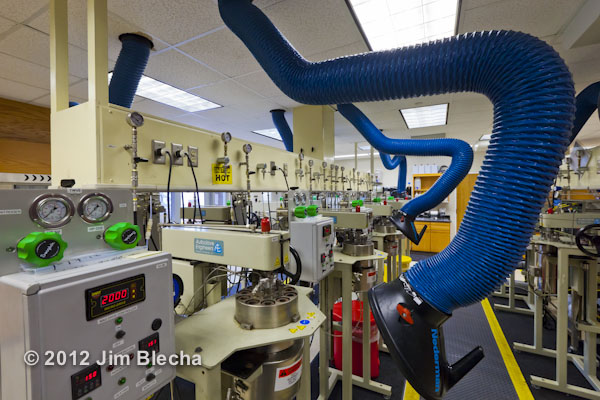
What are the duties & responsibilities of a Senior Laboratory?
- Testing of Salt content in Crude oil analysis by standard ASTM procedures.
- Checking of Crude oil BSSW.
- Checking of A.P.I.
- Checking the oil in water ppm for all types of produced water.
- Calibrating the chemical flows according to the inlet flow of crude.
- Carries down all shutdown activities (for chemical pumps, chemical lines, chemical tanks etc).
- Set up, troubleshoot, and maintain equipment, including calibration logs and training records
- Prepare samples in accordance with standard operating procedures
- Conduct analytical tests on starting materials, ingredients in-process samples and finished products, following specific protocols
- Provide timely and high-quality data reports that document test results
- Recheck out-of-specification results, using alternative methods if necessary
- Test products for long-term stability or stability under various conditions Interface, maintain, and populate a Laboratory Information Management System
- Teaching the asst. technicians about plant flows in simple understanding methods.
- Checking the density of chemicals ph of chemicals,Solubility of chemicals etc..,
- Performing the initial bottle test of Raw Crude and Produced crude.
- Expert in performing the initial test of Demulsifier.
- Good knowledge of plant processes to obtain samples.
- Strong awareness of all the safety procedures, standards and regulations.
- Highly capable of prioritizing work and multitasking.
- Strong verbal and written communication skills,computerized skill.
- Typing report in all format for (PLANT) (ISO)etc..,
- Daily checking and Scheduling, filling the chemical tanks.
- Calibration of the pumps dosage and set the pumping rate as required for the metering pumps.
- Record the consumption of chemicals on a 12hr bases.
- Housekeeping considering all safety hazards and hygiene.
- Safe handling – cleaning – storing of all equipment’s and apparatus.
- Chemical tanks cleaning and flushing within the scheduled time.
- Knowledge of Computerized Centrifuge and Salt Analyzer
- Aware of chemicals MSDS.
- Prepare the laboratory and maintain stock of required chemical and apparatus necessary to perform the experiments successfully.
- Maintain the records of all lab tests performed, give a unique identity code to all the experiments.
- Ensure the availability of pumps and report the maintenance team if any abnormality is observed.
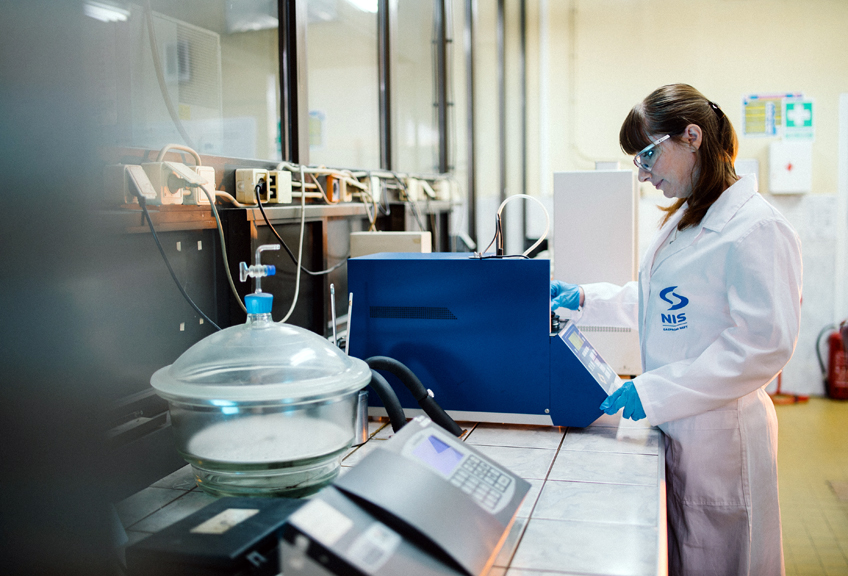
Lab Analysis for a Senior Laboratory?
Salt in Crude oil analysis follows ASTM D 3230-1
- Basic sediment and water analysis follow ASTM D473-07
- API analysis follows ASTM D1208-12B
- Density Meter & API Analyser analysis follows ASTM D 5002
- Reid Vapour pressure follows ASTM D 323-15
- Viscosity of crude oil lube oil etc.,
- Kinematic, Dynamic & DensityASTM D 7042
- Total dissolved solidsanalysisfollows ASTM D 1125
- Total suspended solidsanalysis followsASTM D 5907
- Total Iron content follows ASTM D 1068
- Checking of ph follows ASTM D 1293
- Checking of Dissolved Oxygen
- Checking of h2s gas in flow lines ASTM D 4810
- Checking of Carbon Dioxide (CO2)ASTM D 4984
- Checking of Sulfur Dioxide
- Oil in water analysis follows ASTM 3921
- Salinity analysis follows ASTM D 1125
- Oxygen, Dissolved (Probe ) analysis follows ASTM D 5543 / D 888
What are the instruments handled by a Senior Laboratory?
- Normal lab instrument for salt analysis
- Seta Stanhope instrument for salt analysis
- Kohler centrifuge for BS&W analysis
- UV-VIS Spectrophotometer for total iron content
- Thermo scientific UV -spectrometer (Thermo genesis 20)for Oil in wateranalysis
- TD 500-D Spectrometer for Oil in water analysis
- Anton Paar density meter
- Anton Paar viscosity meter
- Hach multi-meter
- Chemetrics
- Hydrometer for API analys..etc.
What Senior Laboratory has to do?
- perform laboratory tests in order to produce reliable and precise data to support scientific investigations
- carry out routine tasks accurately and following strict methodologies to carry out analyses
- prepare specimens and samples
- construct, maintain and operate standard laboratory equipment, for example centrifuges, titrators, pipetting machines and pH meters
- keep equipment in a clean and serviceable condition and ensure the safe removal of waste
- record, and sometimes interpret, results to present to senior colleagues
- use computers and perform mathematical calculations for the preparation of graphs
- ensure the laboratory is well-stocked and resourced and that everything is clearly and correctly labelled
- keep up to date with technical developments, especially those which can save time and improve reliability
- conduct searches on identified topics relevant to the research
- follow and ensure strict safety procedures and safety checks.
What is Centrifuge?
- A circular design offering a high-efficiency unit that meets or exceeds the RCF requirements of API and ASTM
- A rheostat control with an “off” position for a slow, smooth start and speed control.
- Top-entry motor removal for replacement without removing the centrifuge from its mounting
- A motor mount plate with a ball bearing provides stabilizing support for the motor shaft.
- One-inch thick mounting feet to reduce casting failures.
- Slide open, two section lid, or spring supported lid to keep it open. Designed with a hole in the center so that the centrifuge RPM’s can be checked with a hand held tachometer with the centrifuge lid closed. This feature is especially efficient where room above the centrifuge is limited. This feature also reduces heat loss because it does not require that the complete lid be open for the operator to insert and remove the samples from inside the centrifuge.
- A pre-heater section located in the front of the centrifuge for easy access to the operator
- Flip-up pre-heater covers, with positive mechanical tension to keep the covers closed. Easy-to-grab design for easy opening.
- Easy switch replacement with modul designed front panel. The modular control panel can be removed simply by removing four screws and unplugging the switches. This feature allows the following:
- Individual switches can be replaced in the modular control panel without removing the centrifuge from the vehicle.
- The complete control panel can be replaced without removing the centrifuge from the vehicle. The old control panel can be serviced at a work bench.
- Easy heater assembly replacement in the pre-heater section. The heaters are connected to the switch with quick connect terminals. Remove two screws and lift the heater assembly out of the pre-heater pockets.
- New switches are IP 68 rated. The rating signifies complete protection against dust and prolonged effect of moisture.
- Simplified method of testing the electrical components.
- Three independent electrical circuit design:
- One circuit operates the motor that spins the samples.
- A second circuit, controlled by an “on-off” switch and thermostat, heats the centrifuge bowl. When the sample is placed in the centrifuge at 140 °F, the pre-set thermostat prevents the sample temperature from dropping below 125 °F as specified by API and ASTM
- The third circuit is for the pre-heater section, which is comparable to a separate two-place electrical heater built into the centrifuge. It is operated by a “high-off-low” switch and controlled by the operator. Depending upon the oil sample’s starting temperature, it raises the temperature of two samples to 140 °F in minutes.
- Space-saver design because a separate heater is not required.
- A self-reset circuit breaker near the vehicle’s battery protects the centrifuge’s circuit, as well as the vehicle.
- When the vehicle is not running, an external contactor, wired to the ignition, prevents the heaters from drawing energy from the battery.
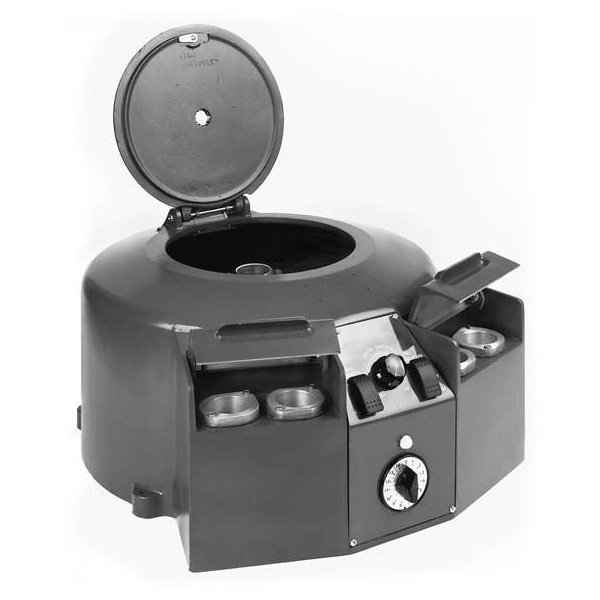
What is a Titrator?
A titrator uses the analysis method wherein the sample is made to react with a reagent solution whose concentration is known, and from the volume of the reacted reagent, the result is determned.Previously, this was judged by the change in indicator solution color when the reagent was dispensed from a glass burette.Now, the “Automatic Potentiometric Titrator” automatically dispensed reagent, determines endpoint, and calculates concentration!
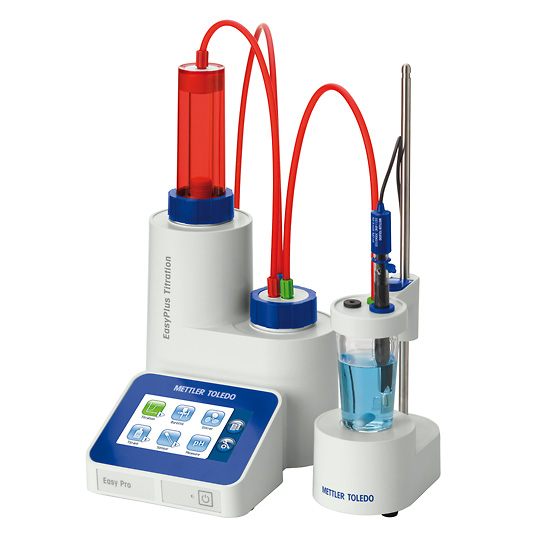
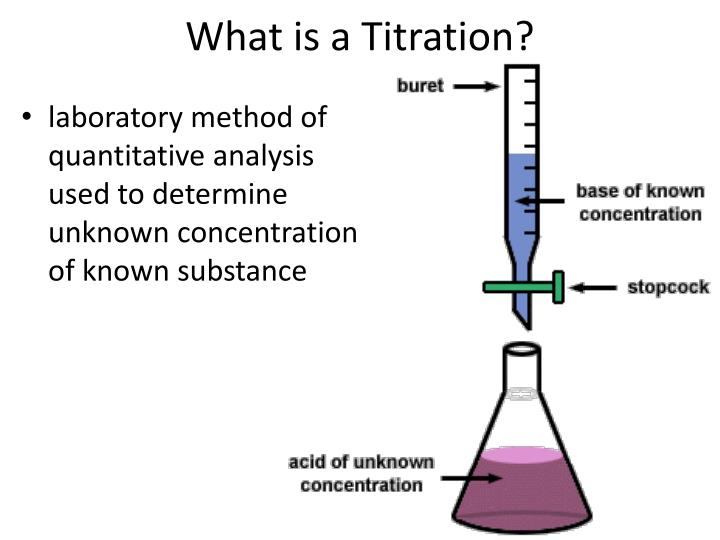
What experience do you have in this laboratory field?
Hopefully if you're applying for this position you have bags of related experience, and if that's the case you should mention it all. But if you're switching careers or trying something a little different, your experience may initially not look like it's matching up. That's when you need a little honest creativity to match the experiences required with the ones you have. People skills are people skills after all, you just need to show how customer service skills can apply to internal management positions, and so on.
What challenges are you looking for this position?
A typical interview question to determine what you are looking for your in next job, and whether you would be a good fit for the position being hired for, is "What challenges are you looking for in a position?" The best way to answer questions about the challenges you are seeking is to discuss how you would like to be able to effectively utilize your skills and experience if you were hired for the job. You can also mention that you are motivated by challenges, have the ability to effectively meet challenges, and have the flexibility and skills necessary to handle a challenging job. You can continue by describing specific examples of challenges you have met and goals you have achieved in the past.
Have you ever had a conflict with a boss or professor? How was it resolved?
Note that if you say no, most interviewers will keep drilling deeper to find a conflict. The key is how you behaviourally reacted to conflict and what you did to resolve it. For example: “Yes, I have had conflicts in the past. Never major ones, but there have been disagreements that needed to be resolved. I've found that when conflict occurs, it helps to fully understand the other person’s perspective, so I take time to listen to their point of view, and then I seek to work out a collaborative solution. For example . . .” Focus your answer on the behavioural process for resolving the conflict and working collaboratively.
What do you know about us?
Follow these three easy research tips before your next job interview: 1) Visit the company website; look in the “about us” section and “careers” sections 2) Visit the company’s LinkedIn page (note, you must have a LinkedIn account — its free to sign up) to view information about the company 3) Google a keyword search phrase like “press releases” followed by the company name; you’ll find the most recent news stories shared by the company Remember, just because you have done your “homework”, it does not mean you need to share ALL of it during the interview! Reciting every fact you’ve learned is almost as much of a turn off as not knowing anything at all! At a minimum, you should include the following in your answer: 1. What type of product or service the company sells 2. How long the company has been in business 3. What the company culture is like OR what the company mission statement is, and how the culture and/or mission relate to your values or personality
Why do you want to work with us?
More likely than not, the interviewer wishes to see how much you know about the company culture, and whether you can identify with the organization’s values and vision. Every organization has its strong points, and these are the ones that you should highlight in your answer. For example, if the company emphasizes on integrity with customers, then you mention that you would like to be in such a team because you yourself believe in integrity. It doesn’t have to be a lie. In the case that your values are not in line with the ones by the company, ask yourself if you would be happy working there. If you have no issue with that, go ahead. But if you are aware of the company culture and realize that there is some dilemma you might be facing, you ought to think twice. The best policy is to be honest with yourself, and be honest with the interviewer with what is it in the company culture that motivates you.
Why should we hire you?
This is the part where you link your skills, experience, education and your personality to the job itself. This is why you need to be utterly familiar with the job description as well as the company culture. Remember though, it’s best to back them up with actual examples of say, how you are a good team player. It is possible that you may not have as much skills, experience or qualifications as the other candidates. What then, will set you apart from the rest? Energy and passion might. People are attracted to someone who is charismatic, who show immense amount of energy when they talk, and who love what it is that they do. As you explain your compatibility with the job and company, be sure to portray yourself as that motivated, confident and energetic person, ever-ready to commit to the cause of the company.
What kind of salary do you need?
A loaded question. A nasty little game that you will probably lose if you answer first. So, do not answer it. Instead, say something like, That’s a tough question. Can you tell me the range for this position? In most cases, the interviewer, taken off guard, will tell you. If not, say that it can depend on the details of the job. Then give a wide range.
Do you have any questions to ask us
Never ask Salary, perks, leave, place of posting, etc. regarded questions. Try to ask more about the company to show how early you can make a contribution to your organization like “Sir, with your kind permission I would like to know more about induction and developmental programs?” OR Sir, I would like to have my feedback, so that I can analyze and improve my strengths and rectify my shortcomings.







